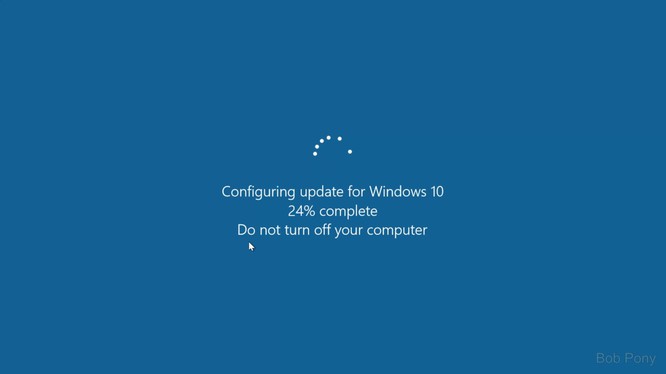The rapid spread of the mutant nCoV strain in the UK raises concerns, whether it kills people faster, how far it spreads, and if the new coronavirus mutation resists vaccines. Here is some information about UK Coronavirus update!
What is the new nCoV variant in the UK?
The term “variants” or strains is used to refer to virus variants that have some variation in genetic sequence from the original discovered in Wuhan, China, in December 2019.
The alteration of the viral genome is a natural phenomenon, because during the infection and reproduction the virus copies its own genome and makes mistakes.
Up to now, the number of nCoV variants detected by genomic sequencing from the patient is up to several thousand. Actual number could be more.
The UK variant of nCoV, called B.1.1.7, was discovered in early September. In November, about a quarter of London’s infections were caused by the new variant. By mid-December, the number of infections caused by this strain accounted for nearly two-thirds of all infections.

The genome of this nCoV variant contains 23 mutations. Most of the mutations that arise are harmful to the virus or have no effect. However, some of the mutations in B.1.1.7 seem to affect the way the virus is spread. Neil Ferguson, an epidemiologist at Imperial College London, estimates the variant has a 50 to 70% increase in transmission rates compared to other strains in the UK.
The fact that a strain of virus becomes more common is probably “with luck”. For example, the variant may have started in a crowded city where it is convenient for virus replication and transmission.
Why is new coronavirus variant causing concern?
This nCov strain is rapidly replacing other versions of the virus. It has mutations that affect a possibly vital part of the virus. Some of these mutations change the way human cells are exposed and infected.
Muge Cevik, infectious disease specialist at St. Petersburg University. Andrews in Scotland, scientific advisor to the UK government, says mutants can be replicated and transmitted more efficiently. British officials say its infection rate could be as high as 70%.
It was the speed of this spread that caused the government to blockade the capital and other countries quickly imposed orders to restrict travel with British tourists.
How far have variants spread?
Variations can be found all over the UK, concentrated in London, the southeast and east of the country. To prevent the virus from spreading, more than 10 member states of the European Union (EU) as well as many other countries such as Canada and Turkey have imposed restrictions on travel with British tourists.
Can a variant make an infected person more likely to die?
There is no evidence that this is happening, although this should be followed by specialists. However, just increasing the number of cases of infection is enough to put pressure on the health system.
Variants are dangerous?
There is no definite evidence of whether this virulence has been increased. There is, however, reason to consider the possibility seriously.
In South Africa, another line of nCoV also contains a special mutation found in B.1.1.7. This variation is spreading rapidly across coastal areas of the country. The doctors there found that people infected with this variant had high concentrations of the virus in the upper respiratory tract. This may be associated with more serious symptoms in some viral illnesses.
Where do variants come from?
In a typical infection, the patient gets nCoV into the body. The virus replicates in sufficient quantities to infect others, several days before symptoms appear. Thereafter, the amount of the virus decreases gradually because the immune system has activated a defensive function. Unless the patient is very sick, most people will get rid of the virus completely in at least a few weeks.
Sometimes the virus infects people with weak immune systems. In the person’s body, the virus can thrive for many months, the person’s immune system cannot defeat the virus. Instead, their bodies become the breeding ground for the virus’s variation.
Other scientists suggest that the virus may gain new mutations by spreading it through populations of animals, like weasels, before returning to human populations. This is a matter of concern as more and more animal cases have been discovered.
Will the new coronavirus mutation resist vaccines?
The US Food and Drug Administration (FDA) has licensed Moderna and Pfizer / BioNTech vaccines. Both of these vaccines teach the immune system to make antibodies to a protein on the surface of the virus, called a spike. This protein attaches to the cells and opens a passageway for the virus to be inside. The antibodies will encase the spike protein to prevent the virus from attaching and infecting cells.
A mutation can cause the virus to change the shape of the spike proteins, making it harder for the “instructed” antibodies to adhere to them.
Variation B.1.1.7 has 8 mutations in the spike gene. Meanwhile, the immune system is able to produce different antibodies against a single viral protein, making it difficult for the virus to escape the attack of the immune system.
The answer to this question is “almost certainly yes”. But, at least at this point, the two vaccines above can both protect against the new virus.
Dr. Moncef Slaoui, Covid-19 Vaccine Acceleration Campaign Scientific Advisor, says the new variant does not affect the effectiveness of the vaccine. “At some point – someday, somewhere – a variant of the virus may render the current vaccine ineffective, but the likelihood of that happening with this vaccine is very low. We must be absolutely vigilant, “said Dr. Slaoui.
Meanwhile, Kristian Andersen, a virologist at the Scripps Research Institute, thinks it is too early to eliminate risks to vaccines. If the UK nCoV variant evolved to escape the immune system in sick patients, those variants could help the virus avoid vaccines. The vaccines won’t be completely useless, but they become less effective.
Acording to Worldometers, the total Coronavirus Cases in the UK is 2,073,511 and the total deaths is 67,616.













